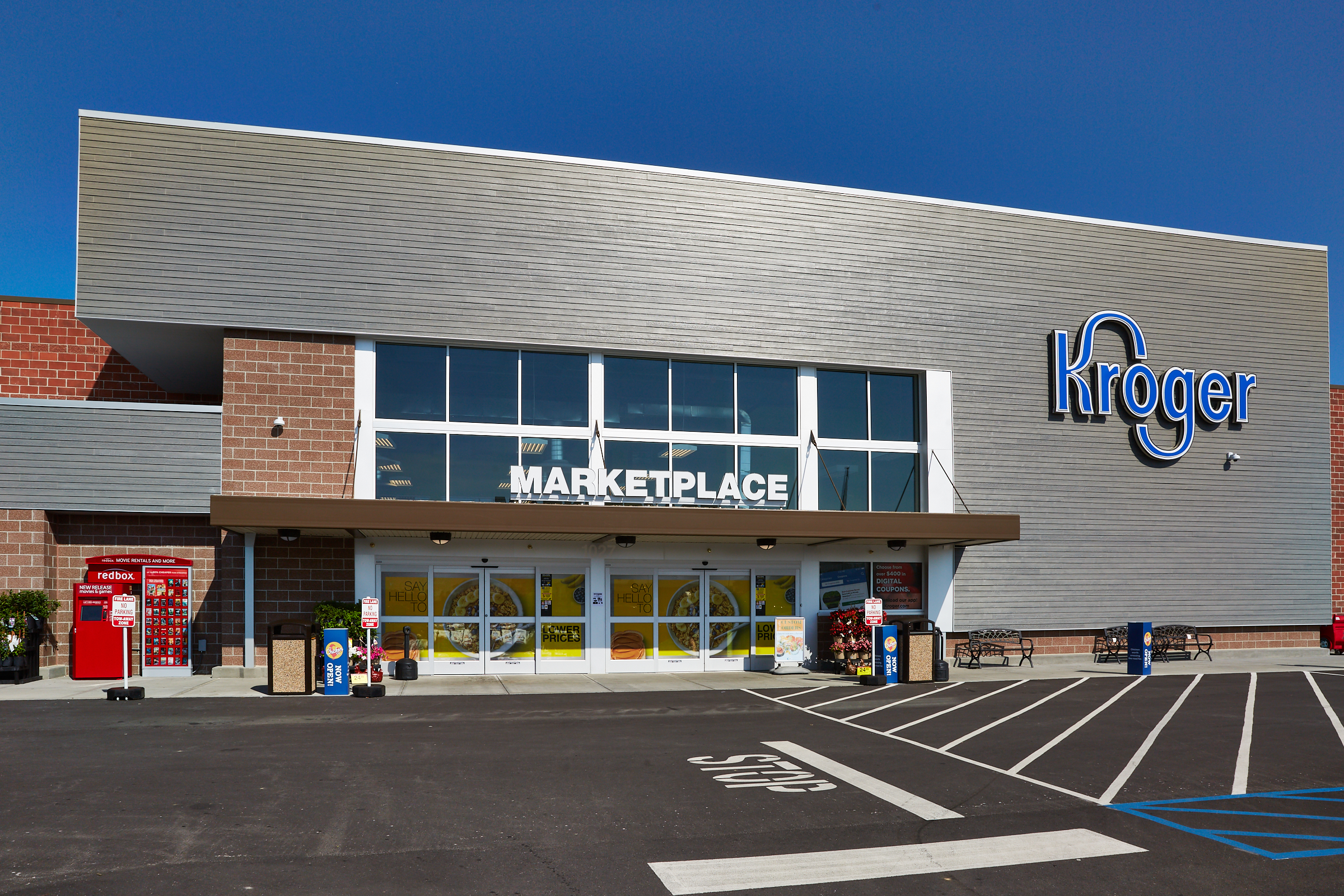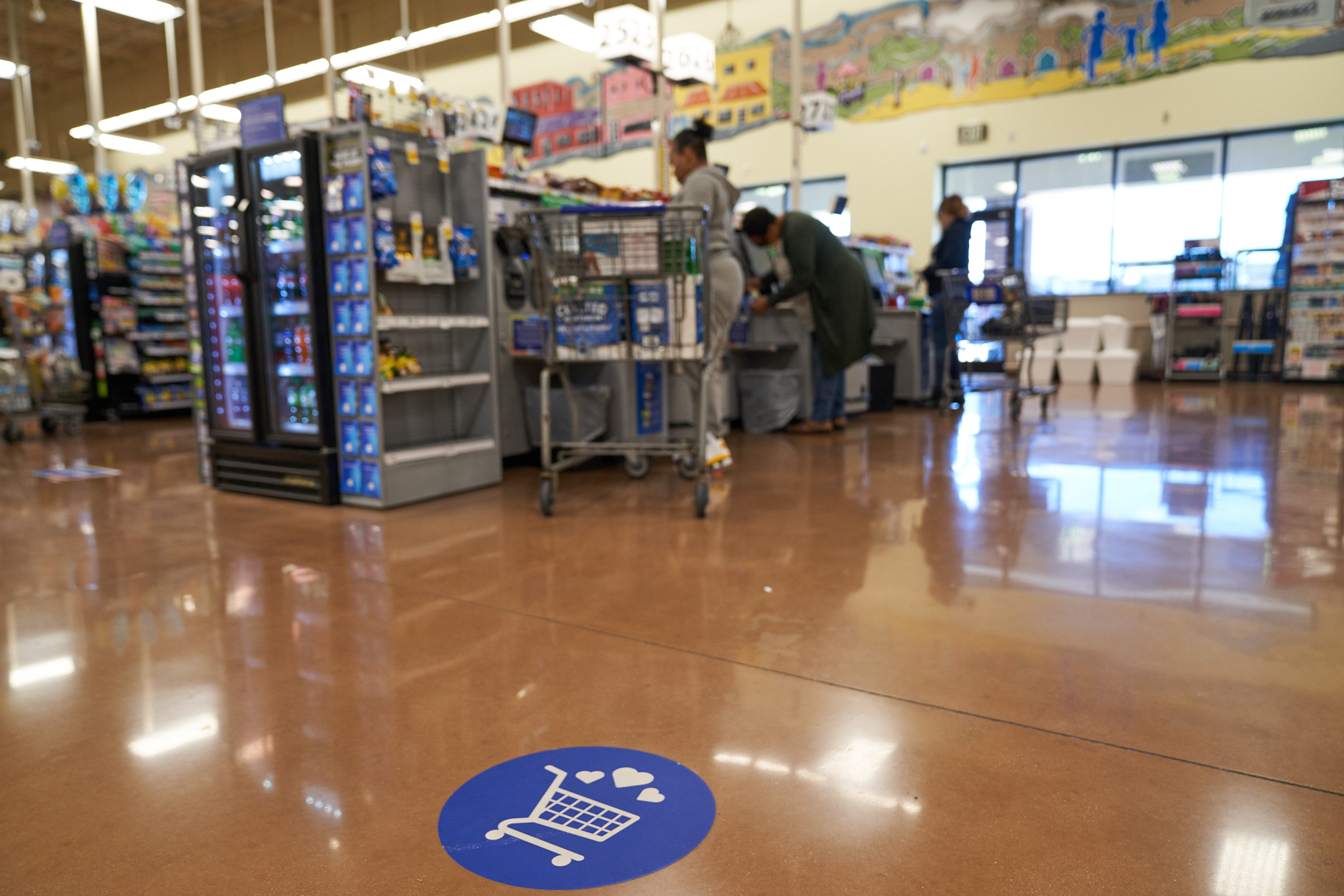The Kroger Co. is adjusting to changing shopping patterns during the coronavirus pandemic but, like everyone else, is waiting to see if a “new normal” takes shape over the long term, according to Chairman and CEO Rodney McMullen.
McMullen shared his views Thursday in a “fireside chat” webcast with analysts Michael Montani and Gregory Melich of investment banking advisory firm Evercore ISI.
“Customers shop with Kroger in these times of uncertainty because it’s a brand they trust. Our most urgent priority is to provide a safe environment for our associates and our customers with open stores, comprehensive digital solutions and an efficient operating supply chain so that our communities have access to fresh, affordable food and essentials,” McMullen said. “When we look across the globe, we know supermarkets and other food and drug stores have remained open throughout the pandemic, even in the hardest-hit countries so far, such as China, Italy and Spain.”
Earlier this month, Cincinnati-based Kroger reported a 30% jump in identical-store sales for March, citing to demand triggered by the rapid spread of COVID-19 in the United States starting at the end of February. McMullen said, based on early observations, shopper behavior in response to the outbreak appears to be unfolding in three phases.
“Initially, there is a surge and demand due to customer stockpiling. This is followed by a period when demand starts to taper but remains higher than normal, as customers adjust to new dining and travel restrictions. Beyond the second phase, it’s way too early to speculate on customer behavior and how it will change for the long term and what will emerge as the new normal,” he explained.
“We currently believe we are in the second phase within the U.S.,” he added. “We are making investments in our associates, stores and supply chain to ensure that whatever the third phase brings, Kroger will be best-positioned to serve our customers and communities and come out better.”

Earlier this month, Cincinnati-based Kroger reported a 30% jump in identical-store sales for March, citing to demand triggered by the rapid spread of COVID-19.
Although Americans concentrated on pantry stock-up purchases at first — especially “easy to cook” items such as pasta, rice and beans — they have continued to buy fresh foods, namely meat and produce, noted McMullen.
“If you look initially, the panic or stock-up — whichever words you want to use — was more focused on toilet paper, sanitation-type products and those types of things. If you look at over time — and in today’s world, time means like a week — then it started moving to the fresh departments like meat, produce, some of those areas,” he said. “It’s fascinating throughout this that with toilet paper — any type of sanitation product, basically — most of our stores get daily deliveries, and they’re typically out by 10 a.m., sometimes noon. But there’s still aggressive buying of some of those products continuing.”
Buying spurts by customers meant Kroger had to be able to make quick changes, McMullen pointed out. “I’ve never been part of an environment where you’re adjusting, in some cases, almost hourly,” he said.
With sudden out-of-stocks hitting supermarkets across the country, Kroger has seen new shoppers enter its stores and, in turn, additional exposure to its “Our Brands” roster of private-label products.
“What we’re finding is people buy everything,” according to McMullen. “We have a lot of new customers coming in our stores. We have a lot of new customers buying Our Brand products. Our expectation and hope is, one, we do a good job for them, and we do a great job for them and relative to the environment that's going on and, to the extent they buy our branded product, they find out how good they are and get addicted to Our Brands and we end up gaining share.
“But right now, people are more focused on having — if you look at toilet paper, people really don’t complain about what brand it is,” he added. “All they’re looking for is toilet paper. It’s more important to get the item versus the brand.”
What’s more, customers are making bigger purchases in fewer trips, McMullen said.
“What we find is that people come to the store less frequently, and they spend significantly more per trip, where in the past somebody would stop at the store to pick up dinner tonight,” he explained. “Most people come into the store to really try to purchase for the whole week or two weeks. And that behavior is the same for loyal households as it is for people that we would call non-loyal. But the non-loyals are spending a meaningful amount per trip, and they’re just looking for a store that is doing the best job on in-stocks and having the products they want.”

"It's way too early to speculate on customer behavior and how it will change for the long term and what will emerge as the new normal,” said Kroger CEO Rodney McMullen.
As families continue to shelter in place, either on their own or in compliance with state or local orders, food retailers nationwide are watching to see if this will result in more meals being eaten at home, maintaining some of the grocery sales gains made in recent weeks.
“People are eating three meals a day at home with their family. When you look at meat and produce and departments where we continue to see elevated growth, it will definitely continue beyond — elevated growth beyond what was traditionally experienced,” McMullen said. “If you look at what we’re experiencing, it’s consistent with what we’ve been seeing in China and Hong Kong, Singapore and Italy. I have regular calls with CEOs from those areas, plus Australia and Canada, and we’re all trying to understand what the long-term customer trend changes are for us. Especially when you look at China, Italy, Hong Kong and Singapore — they are still probably in phase two or beginning phase three and [we’re] trying to learn from those trends.”
One definite trend for Kroger during the pandemic has been the growth of digital purchases. Evercore’s Montani said his team has reckoned gains of more than 30%, and even approaching triple digits, in some of Kroger’s digital channels.
“We’re seeing a meaningful pickup in both physical stores and digital,” McMullen said, adding that Kroger has stepped up hiring to support its online pickup business. “The growth there has been substantial, and the growth has been substantial both in terms of pickup and delivery. And basically, every day, we expand the capacity and we sell out the expanded capacity.”
Going forward, McMullen expects Kroger’s and the nation’s food supply chains to hold up fine as they continue to adjust to the sharp changes in supply and demand brought by COVID-19.
“If you look at the supply chain overall, I’ve been thrilled with the Kroger team, and their ability to flex and expand the capacity of what goes through our system incredibly quickly is inspirational and appreciated and mind-boggling,” he said.
Kroger has been making strides with its CPG partners on reducing the number of items to ease strain on inventory and restocking — and that demand has been steep, reported McMullen. Customers typically shopping for one week are now suddenly doing so for four weeks, and Kroger is ordering and selling two times more than previously, he said.
“Whenever I get a chance to be in front of a national audience, I always remind people there’s plenty of food in the supply chain and just buy what you need,” McMullen noted. “And as long as everybody buys what they need, the supply chain will operate effectively and efficiently, and people will be able to continue to eat and eat the way they want to.”
For our most up-to-date coverage, visit the coronavirus homepage.





